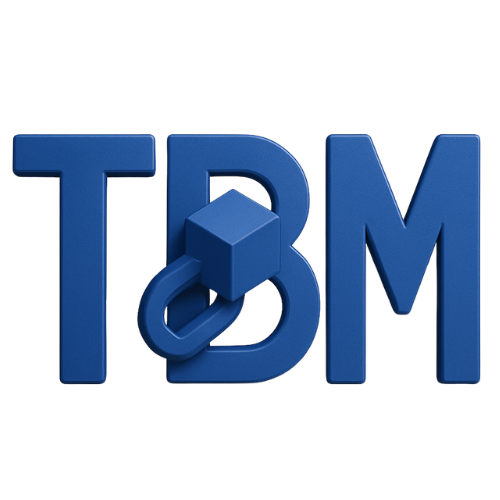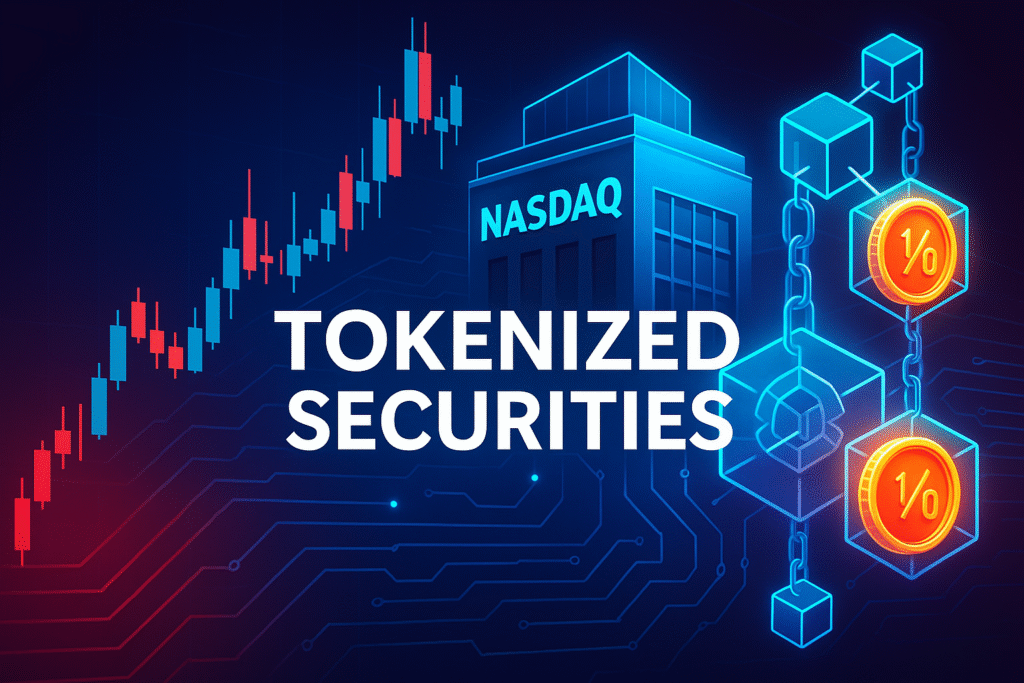The line between Wall Street and Web3 is starting to blur. Nasdaq, one of the world’s largest stock exchanges, has proposed allowing tokenized securities on its main market. This isn’t just another “crypto experiment.” It’s a potential turning point in how traditional finance and blockchain converge.
Let’s unpack what tokenized securities are, why Nasdaq’s decision matters, and what it could mean for investors worldwide.
What Are Tokenized Securities?
At their core, tokenized securities are real financial assets (like stocks, bonds, or funds) represented as digital tokens on a blockchain.
Think of it this way: instead of owning a paper certificate or a digital record locked inside a bank’s system, your ownership is recorded on a blockchain ledger — tamper-proof, transparent, and transferable.
Technically, this happens through smart contracts that encode the rights of the security (voting rights, dividends, etc.) into the token itself. Legally, these tokens are still regulated as securities — meaning they fall under securities laws and require compliance just like traditional stocks.
Why Nasdaq’s Move Is So Important
Nasdaq’s willingness to host tokenized securities is significant because it validates blockchain as more than a niche experiment. It’s a recognition that distributed ledger technology (DLT) can:
- Enhance market efficiency by cutting out intermediaries.
- Bring liquidity to traditionally illiquid assets like real estate or private equity.
- Open global access to investment opportunities once limited to select markets.
This is not about replacing the stock exchange. It’s about upgrading it.
Benefits for Investors
- Fractional Ownership: Tokenization allows assets to be split into smaller pieces. Owning a fraction of a Tesla share, or even a piece of a commercial building, becomes possible.
- 24/7 Trading: Unlike traditional exchanges with closing bells, blockchain markets can run around the clock. Liquidity is no longer bound by geography or time zones.
- Global Participation: A tokenized share listed in New York could, in principle, be bought by an investor in Nairobi or São Paulo instantly, assuming regulatory approvals.
- Reduced Settlement Times: Current securities trades can take T+2 days to settle. Blockchain can reduce this to minutes, with fewer intermediaries.
The Challenges Ahead
Of course, tokenization is not without hurdles:
- Regulation: Each jurisdiction has its own securities laws. Harmonizing blockchain-based securities across borders is complex.
- Custody & Security: Where and how are tokenized assets stored? How are private keys managed securely?
- Investor Protection: Fraudulent tokens or hacks could undermine trust. Investor safeguards must evolve alongside the technology.
- Market Fragmentation: Without common standards, we risk siloed markets where tokenized securities aren’t interoperable.
For Nasdaq, the challenge will be balancing innovation with compliance.
Case Studies & Emerging Market Impacts
Tokenized securities are already being piloted:
- Switzerland’s SIX Digital Exchange (SDX): Launched tokenized bonds with full regulatory approval.
- Singapore Exchange (SGX): Exploring tokenized bonds and funds to boost cross-border capital flows.
- Private Markets: Real estate tokenization projects in the UAE and U.S. have shown that even small investors can access premium assets.
In emerging markets, tokenized securities could be transformative:
- Democratizing Access: Small investors could own fractions of blue-chip global stocks without high entry costs.
- Boosting Liquidity: Local businesses could raise funds globally by issuing tokenized shares, bypassing traditional bottlenecks.
- Financial Inclusion: Mobile-first economies could leapfrog legacy financial infrastructure, plugging directly into blockchain-based capital markets.
What This Means for You as an Investor
Nasdaq’s move doesn’t mean you’ll be buying tokenized Apple shares tomorrow. But it signals where the world is heading: a future where securities, like money, are natively digital.
For retail investors, this could mean:
- Greater access to diverse assets.
- Faster and cheaper trades.
- A global marketplace at your fingertips.
For institutions, it’s about unlocking efficiency, cutting costs, and preparing for a digitized financial ecosystem.
Final Thought
Tokenized securities are not hype — they are the logical next step in the digitization of finance. Nasdaq’s embrace of the model shows that blockchain is no longer on the sidelines; it’s moving into the heart of global capital markets.
The future of investing may not be about choosing between Wall Street and Web3. It may be about living at the intersection of both.
Frequently Asked Questions (FAQ) on Tokenized Securities
Q1: What exactly are tokenized securities?
Tokenized securities are traditional financial assets such as stocks, bonds, or funds that are digitally represented on a blockchain. They remain regulated as securities but are issued and tracked using distributed ledger technology.
Q2: How do tokenized securities differ from cryptocurrencies?
Cryptocurrencies like Bitcoin are native digital assets without underlying claims. Tokenized securities, on the other hand, represent ownership in a real-world regulated asset, such as equity in a company or a bond.
Q3: What are the benefits of tokenized securities for investors?
They enable fractional ownership (investors can buy smaller portions of expensive assets), 24/7 trading, faster settlement times, and broader global access to investment opportunities.
Q4: What are the main challenges to adoption?
The biggest hurdles are regulatory uncertainty, safe custody of tokenized assets, investor protection against fraud or hacks, and interoperability across different blockchain platforms.
Q5: How does Nasdaq’s move change the game?
By allowing tokenized securities on its main market, Nasdaq is legitimizing blockchain technology within traditional finance. This could accelerate adoption worldwide and push regulators to create clearer frameworks.
Q6: Could tokenized securities impact emerging markets?
Yes. They can democratize access by letting small investors buy fractions of global assets, provide new funding routes for local businesses, and integrate mobile-first economies directly into global capital markets.
Q7: Is it safe to invest in tokenized securities today?
Tokenized securities are still early-stage. If you consider investing, stick to regulated exchanges or platforms, and confirm that the tokens are legally recognized as securities in your jurisdiction.

